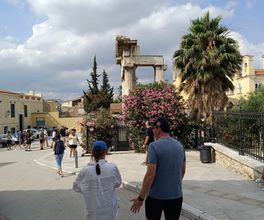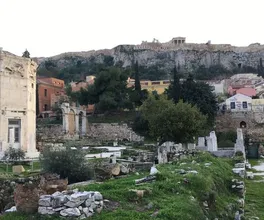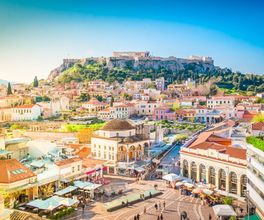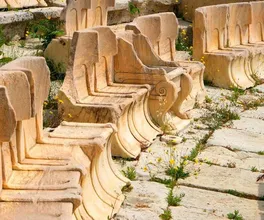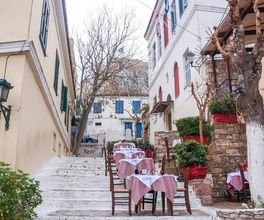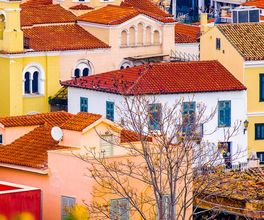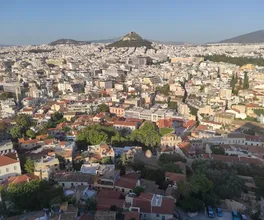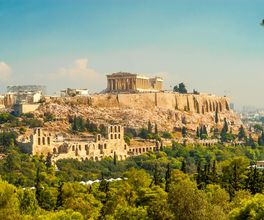




About this experience
Greece - the cradle of European civilization, and Athens - its heart. In the city of inexhaustible inspiration and timeless beauty, you will walk along the ancient streets of the historical center, the oldest district of Plaka, and view the famous ancient ruins from different perspectives. Along the way, we will discuss the role of Classical Greece in the development of Western culture, the great Hellenic spirit, the birth of democracy, philosophy, and theater. You will learn about the era of Pericles' 'Golden Age' and famous thinkers, the symbolism of the olive tree, and wine cult. You will also get acquainted with the traditions of ancient Greeks and through them observe the modern way of life, customs, and mentality of the people.
What to expect
The Great Spirit of Attica
Classical Greece set the direction for the development of all Western European civilization. You will learn why democracy, philosophy, and theater were born precisely here. What served as a prerequisite for the formation of culture, civil freedoms, and art. And how at the crossroads of different ethnic worldviews, at the border between the East and West of Europe, the mighty Hellenic spirit emerged, grew, and strengthened. We will also talk about interesting parallels between famous legends and objective facts that you may not have been aware of - one of the topics will be, for example, the origin of the Greek alphabet.
The Oldest District of Athens
We will take a walk through the ancient Plaka, where people have lived continuously for several millennia and where almost every stone remembers Pericles' 'Golden Age'. We will discuss its influence on the works of the Renaissance, the creativity of modern artists, and the image of thinking of a new person. In the historical quarter, you will cover several epochs at once - see the majestic Roman columns and traces of Turkish rule, as well as get acquainted with the classics of Aegean city planning, explore the oldest meteorological monument - the Wind Tower - and visit many picturesque taverns.
The spirit of history on the hills of Athens
At the foot of the sacred rock of Acropolis, you will become acquainted with the island-Cycladic architecture, see gingerbread houses and narrow white streets. I will tell you who the inhabitants of this magical place were and why they found themselves in the center of Athens near the Acropolis. On Muses' Hill (Philopappos), we will recall Socrates, who spent his last days here. You will hear about the strategic importance of the place and see silvery-green olive groves. On Areopagus Hill, where the god of war Ares was judged, you will learn about an important legislative body of ancient Athens, the preaching of the baptizer of Greece, the apostle Paul, and the first Greeks who accepted Christianity.
Traditions of Ancient and Modern Greeks
Walking along the agora, I will tell you the importance of the city square for the ancient Greeks. On the shopping streets, you will see exclusive items and objects of folk craft, including products made of olive wood. Through the works of Greek ceramic artist, you will learn about ancient pottery traditions. We will separately discuss the role of the olive in the culture of the people and all the subtleties of olive oil - the symbol of the Mediterranean. In addition, we will talk about grape varieties, branded wines, and the drinks of the Hellenes. And, of course, we will not overlook the modern residents - you will hear what they love and what they dislike; what a woman is entitled to, and what a man is entitled to when entering into marriage; how weddings and christenings are held; what life values are respected, and what are the peculiarities of the Greek mentality.
